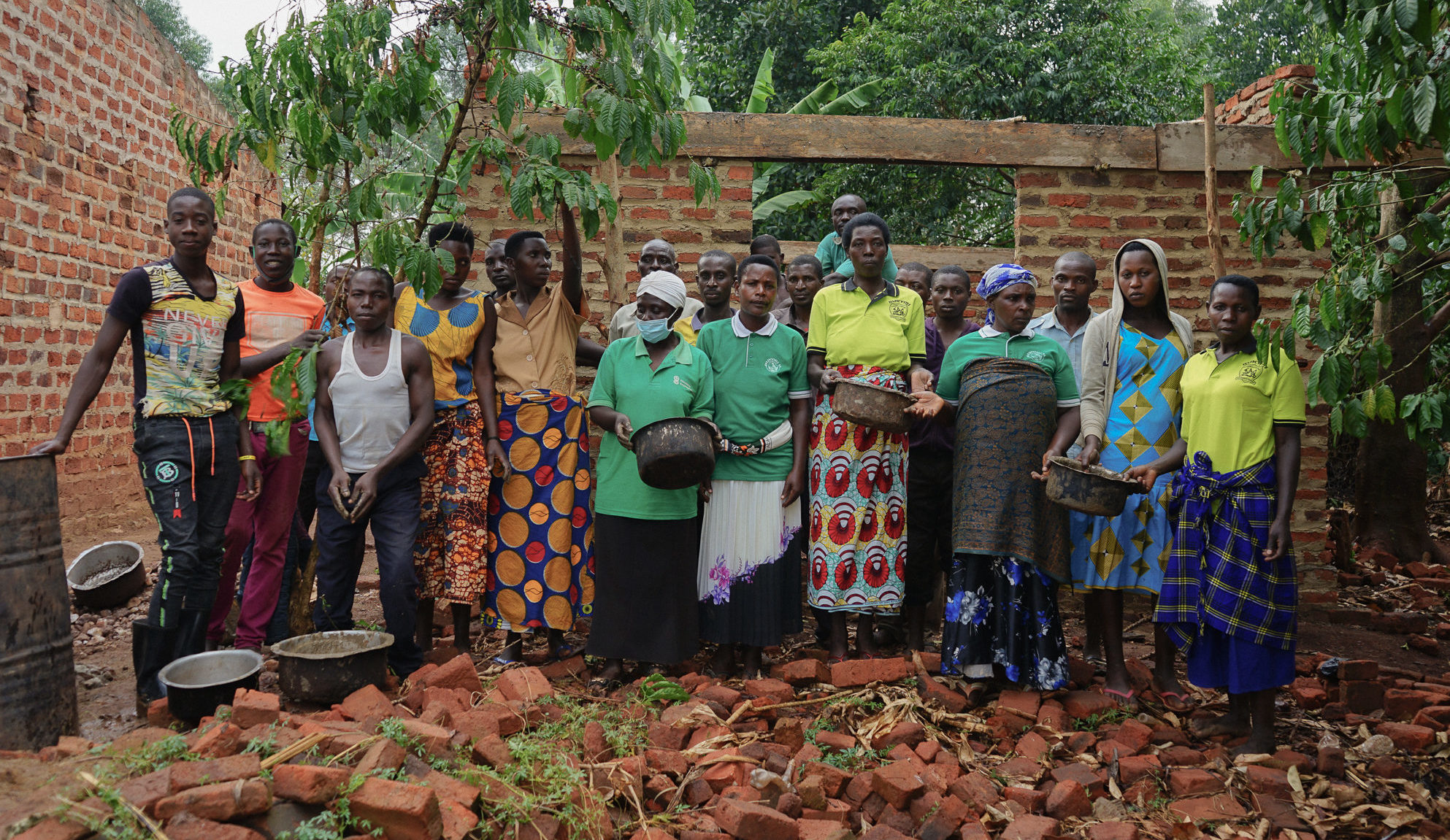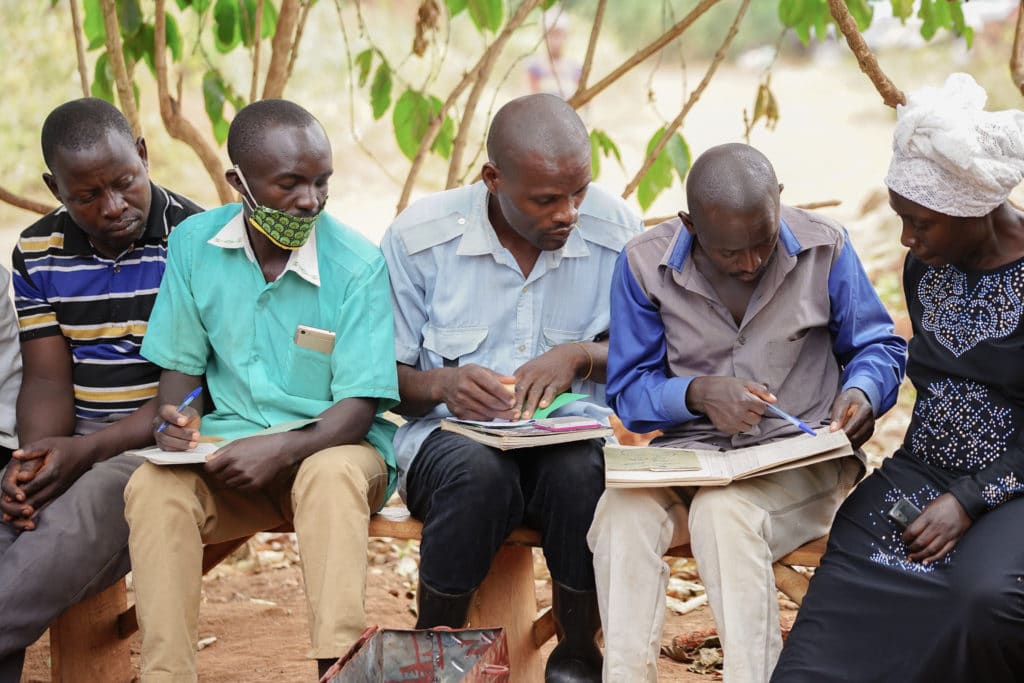The Transformative Power of VSLAs

In the Rukiri B Village – a last-mile village in Kagadi District – a group of young people have started construction of a small agricultural store to sell their produce. This was made possible through the Rukiri B Tukulakulane Village Savings and Loans Association (VSLA).
This VSLA group provides participants basic financial services such as savings and acquiring loans, as they actively build financial knowledge and skills as part of RTV program.
Globally, about 1.7 billion adults remain unbanked — without an account at a financial institution, and without access to essential financial services such as loans. The last-mile rural communities we work with in Uganda are unbanked as well, and are considered “unbankable”. Without access to formal accounts and savings and financial literacy to empower them, they are unable to withstand unexpected life events or development shocks. Without access to loans, they are not able to invest in their future. This perpetuates the cycle of ultra-poverty, and limits their pathways to break out of it. In many such communities, young people may become heads of households at a much younger age due to ultra-poverty conditions as well as lack of opportunities. With the added pressure of not even having any financial institutions, youth in rural communities are placed under a lot of pressure as they face unemployment and can either rely on small-scale farming or migrate to urban areas as precarious migrant workers.
The youth VSLA in Rukiri B is a small example of how youth can lead if provided access to financial inclusion. This group benefited from Raising The Village’s Financial Literacy Training (FLT), which is an essential part of our Healthy Household Training. Judith, the treasurer of Rukiri B Tukukulane Village Savings and Loans Association stated:
“Before participating in the Raising The Village’s [Financial Literacy] trainings, we used to save money only for buying new clothes and for buying meat and soda during public holidays. Today we save for a purpose and as a group. We are already constructing an agricultural store to ensure good post-harvest standards so we can get good prices for our harvests in the market. We also plan to buy for every member a cow after completing our store.”
Investing in breaking the cycle of ultra-poverty
Being a part of Rukiri B Tukukulane Village Savings and Loans Association not only impacted the members of the group but has benefits for the entire community. Young people who are involved in the process of effective financial decision making are given an opportunity to collectively improve the economic status of their villages, change behaviours, and become strong leaders. These trainings are pathways for building mechanisms of change, not just in community members’ mindsets but in their day to day lives as well
“I really appreciate these members that I lead. This group and trainings are providing us with important life skills.”

Informal financial institutions like saving groups, are a pillar for economic growth in unbanked communities. They are community-based solutions that are geared towards empowering individuals, especially young members of communities who are in the early stages of their financial literacy. As one part of RTV’s holistic livelihoods programs, these groups play an important role in encouraging communities to invest in savings, gain self-confidence as leaders, develop long-lasting relationships within their communities, and grow their local economy and social support networks.


